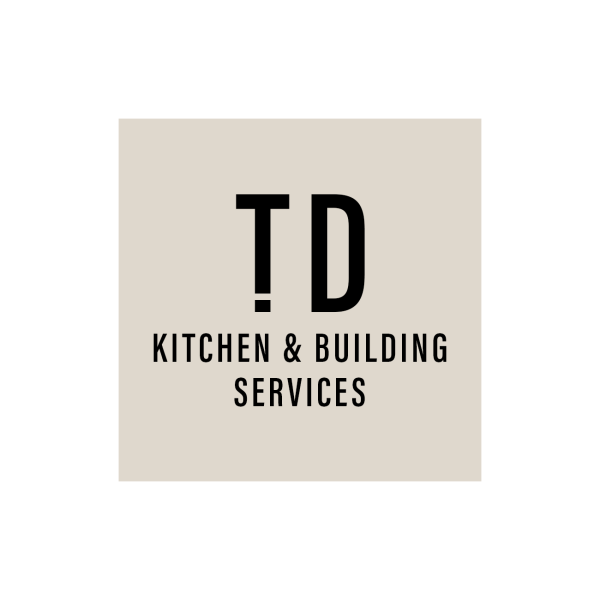Understanding Garage Conversions in Washington
Garage conversions in Washington have become a popular trend, offering homeowners an innovative way to maximise their living space. Whether you're looking to create a home office, a guest suite, or a recreational area, converting your garage can be a cost-effective solution. This article delves into the various aspects of garage conversions, providing a comprehensive guide to help you navigate the process with ease.
The Benefits of Garage Conversions
Garage conversions offer a plethora of benefits, making them an attractive option for many homeowners. Firstly, they provide additional living space without the need for a costly extension. This can significantly increase the value of your property, offering a substantial return on investment. Moreover, converting your garage can enhance the functionality of your home, allowing you to tailor the space to meet your specific needs.
Increased Property Value
One of the primary advantages of a garage conversion is the potential increase in property value. By transforming an underutilised space into a functional area, you can make your home more appealing to potential buyers. This is particularly beneficial in Washington's competitive real estate market, where additional living space is highly sought after.
Enhanced Living Space
Garage conversions can significantly enhance your living space, providing you with the flexibility to create a room that suits your lifestyle. Whether you need a home office, a playroom for the kids, or a guest suite, a garage conversion can offer the perfect solution. This additional space can improve your quality of life, making your home more comfortable and accommodating.
Planning and Permits for Garage Conversions
Before embarking on a garage conversion project, it's crucial to understand the planning and permit requirements in Washington. These regulations ensure that your conversion complies with local building codes and safety standards. Failing to obtain the necessary permits can result in fines and may affect the resale value of your home.
Understanding Local Regulations
Each city in Washington may have its own set of regulations regarding garage conversions. It's essential to familiarise yourself with these rules to ensure your project is compliant. This may include restrictions on the size and use of the converted space, as well as requirements for parking and access.
Obtaining Necessary Permits
To legally convert your garage, you'll need to obtain the appropriate permits from your local planning department. This typically involves submitting detailed plans of your proposed conversion, including structural changes and electrical work. It's advisable to work with a professional architect or contractor who can help you navigate the permitting process.
Design Considerations for Garage Conversions
Designing a garage conversion requires careful planning to ensure the space is functional and aesthetically pleasing. From layout and lighting to insulation and flooring, there are several factors to consider when designing your new space.
Layout and Functionality
The layout of your converted garage should be tailored to its intended use. Consider how the space will be used and plan the layout accordingly. For example, if you're creating a home office, you'll need to ensure there's adequate space for a desk and storage. If it's a guest suite, consider incorporating a bathroom and kitchenette.
Lighting and Ventilation
Proper lighting and ventilation are crucial for creating a comfortable living space. Consider installing windows or skylights to maximise natural light and improve ventilation. Additionally, you'll need to plan for artificial lighting, ensuring the space is well-lit and inviting.
Insulation and Heating
Insulating your garage conversion is essential for maintaining a comfortable temperature year-round. This is particularly important in Washington, where temperatures can vary significantly. Consider installing high-quality insulation in the walls, ceiling, and floor to improve energy efficiency. Additionally, you'll need to plan for heating, whether through a central system or standalone units.
Cost Considerations for Garage Conversions
The cost of a garage conversion can vary significantly depending on the scope of the project and the materials used. It's important to establish a budget early on and plan your conversion accordingly.
Budgeting for Your Conversion
When budgeting for your garage conversion, consider all potential costs, including design, permits, materials, and labour. It's advisable to obtain quotes from multiple contractors to ensure you're getting a fair price. Additionally, factor in any unexpected expenses that may arise during the project.
Choosing Cost-Effective Materials
Choosing cost-effective materials can help you stay within budget without compromising on quality. Consider using recycled or reclaimed materials, which can add character to your conversion while reducing costs. Additionally, opt for durable materials that require minimal maintenance, ensuring your conversion stands the test of time.
Hiring Professionals for Your Garage Conversion
While some homeowners may choose to tackle a garage conversion as a DIY project, hiring professionals can ensure a high-quality finish and compliance with local regulations. From architects and designers to contractors and electricians, there are several professionals who can assist with your conversion.
Finding the Right Architect or Designer
An architect or designer can help you create a functional and aesthetically pleasing space, tailored to your needs. When choosing a professional, consider their experience with garage conversions and ask to see examples of their previous work. This will give you confidence in their ability to deliver a successful project.
Selecting a Reliable Contractor
A reliable contractor is essential for ensuring your garage conversion is completed on time and within budget. When selecting a contractor, obtain references and read reviews from previous clients. Additionally, ensure they are licensed and insured, providing peace of mind throughout the project.
Common Challenges in Garage Conversions
While garage conversions offer numerous benefits, they can also present certain challenges. Being aware of these potential obstacles can help you plan effectively and avoid common pitfalls.
Dealing with Structural Issues
Structural issues can arise during a garage conversion, particularly in older properties. It's important to address these issues early on to ensure the safety and stability of your conversion. This may involve reinforcing walls or floors, or addressing issues with the foundation.
Addressing Zoning Restrictions
Zoning restrictions can impact the scope of your garage conversion, particularly if you live in a densely populated area. It's important to understand these restrictions and plan your conversion accordingly. This may involve working with a professional who can help you navigate the complexities of zoning laws.
Maximising Space in Your Garage Conversion
Maximising space is crucial for creating a functional and comfortable living area. There are several strategies you can employ to make the most of your converted garage.
Utilising Vertical Space
Utilising vertical space can help you maximise storage and functionality in your converted garage. Consider installing shelves or cabinets that reach up to the ceiling, providing ample storage without taking up valuable floor space.
Incorporating Multi-Functional Furniture
Multi-functional furniture can enhance the versatility of your converted garage, allowing you to make the most of the available space. Consider incorporating items such as sofa beds, fold-out tables, or storage ottomans, which can serve multiple purposes and save space.
Environmental Considerations for Garage Conversions
Environmental considerations are increasingly important for homeowners undertaking garage conversions. By incorporating sustainable practices and materials, you can reduce your environmental impact and create an eco-friendly living space.
Using Sustainable Materials
Using sustainable materials can reduce the environmental impact of your garage conversion. Consider using materials such as bamboo flooring, recycled insulation, or low-VOC paints, which are environmentally friendly and contribute to a healthier indoor environment.
Improving Energy Efficiency
Improving energy efficiency is crucial for reducing your carbon footprint and lowering utility bills. Consider installing energy-efficient windows and doors, as well as LED lighting and energy-efficient appliances. Additionally, ensure your conversion is well-insulated to minimise heat loss and improve energy efficiency.
Legal and Insurance Considerations
Legal and insurance considerations are an important aspect of any garage conversion project. Ensuring your conversion is compliant with local laws and adequately insured can protect you from potential legal issues and financial loss.
Understanding Legal Requirements
Understanding the legal requirements for garage conversions is crucial for ensuring compliance with local laws. This may involve obtaining the necessary permits and adhering to zoning restrictions. It's advisable to consult with a legal professional or local planning department to ensure your conversion is compliant.
Updating Your Home Insurance
Updating your home insurance policy is essential after completing a garage conversion. This ensures your new living space is adequately covered in the event of damage or loss. Contact your insurance provider to discuss any changes to your policy and ensure your conversion is fully protected.
Frequently Asked Questions
- Do I need a permit for a garage conversion in Washington? Yes, obtaining a permit is typically required for garage conversions to ensure compliance with local building codes and safety standards.
- How much does a garage conversion cost in Washington? The cost can vary significantly depending on the scope of the project and materials used, but it's important to establish a budget and obtain quotes from multiple contractors.
- Can I convert my garage into a rental unit? Converting a garage into a rental unit may be possible, but it's important to check local zoning laws and obtain the necessary permits.
- How long does a garage conversion take? The duration of a garage conversion can vary depending on the complexity of the project, but it typically takes several weeks to a few months to complete.
- What are the common challenges in garage conversions? Common challenges include dealing with structural issues, addressing zoning restrictions, and ensuring compliance with local regulations.
- How can I maximise space in my garage conversion? Maximising space can be achieved by utilising vertical space, incorporating multi-functional furniture, and carefully planning the layout of the conversion.
Garage conversions in Washington offer a fantastic opportunity to enhance your living space and increase the value of your home. By understanding the benefits, planning requirements, and design considerations, you can successfully navigate the conversion process and create a space that meets your needs. Whether you're looking to add a home office, guest suite, or recreational area, a garage conversion can provide the perfect solution for maximising your home's potential.


















